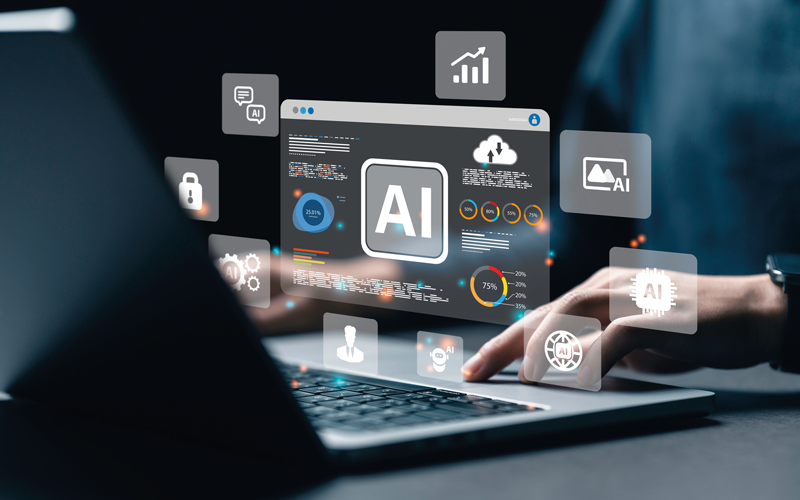
Image © Shutterstock
The public sector is grappling with pressing challenges, from economic instability and rising demand for services to constant restructuring efforts. These issues are compounded by the rapid pace of technological change, particularly artificial intelligence.
While it’s tempting to focus all our attention on immediate challenges, it’s equally important to consider how AI will transform our profession.
The rapid development of AI presents both a challenge and an opportunity for the accountancy profession. Recently, former chancellor Jeremy Hunt warned that AI would soon take over accountants’ jobs. In response, I rebutted this concern. AI may disrupt many industries, but it will not eliminate the role of accountants – rather, it will change how we work.
Historically, technology has always been integrated into accountancy, from early tools like the abacus to modern spreadsheets and software. Today, AI offers remarkable potential to enhance the way accountants analyse and interpret data. AI can automate routine tasks, allowing accountants to focus on higher-value, strategic activities. For example, it can help with data entry, reconciliation and basic analysis, freeing up time for professionals to engage in more complex and impactful work.
While AI’s capabilities are impressive, it cannot replace the judgment, ethical considerations and decision-making that human accountants bring to the table. In an open letter responding to Hunt’s comments, I engaged with AI tools like Microsoft Copilot to ask whether AI would replace accountants. The response was clear: AI will augment accountants' roles, improving accuracy, efficiency and decision-making processes, but human expertise is irreplaceable.
This shift in the profession isn’t about redundancy but adaptation. Accountants will need to develop new skills in data analytics, AI and decision-making. This requires a proactive approach to learning and adapting to new technologies, while preserving the human elements of judgment and ethics.
At CIPFA, we are working with ICAEW and other organisations to ensure that AI is integrated into our training, continuing professional development and support for finance practitioners. It is essential that we help public finance professionals embrace technology, so they can use it to solve problems and improve service delivery, rather than fearing it as a threat.
The rapid advancements in AI demand that we carve out time in our busy schedules to stay curious and learn. Public finance professionals must remain agile, collaborating with others to understand how AI can address the challenges we face, whether it’s financial instability, resource scarcity or improving public service delivery. Ignoring the impact of AI could lead to stagnation, but actively engaging with it will open new possibilities.
As we navigate the future of public finance, it is clear that AI isn’t a threat – it’s an opportunity. The key is to harness its potential to drive efficiency and insight while ensuring that human expertise remains central to our work. It’s not about replacing accountants but empowering them to do more, do better and make smarter decisions.
The challenges we face in public finance are immense, but with the right tools and mindset, we can rise to the occasion. At CIPFA, we remain committed to supporting finance professionals as they adapt to these changes. Together, we can ensure that public finance continues to serve the needs of communities while embracing the opportunities of tomorrow.












